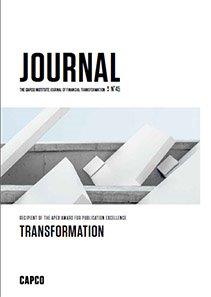This paper highlights the need for industry and technology standards in the design, implementation, and use of RegTech. Without such standards, RegTech may fail to fulfil its promise of facilitating “smart regulation.” It is well-accepted that RegTech has the potential to help financial enterprises address the following issues: (1) solve the regulatory interpretation problem; (2) develop compliant governance and business policies; (3) make regulatory compliance reporting more efficient and effective; (4) help firms perform better data governance and analytics; (5) enable integrated risk management; and (6) automate controls across the business.
Two significant problems challenge the potential of RegTech. The first of these is the “translation problem,” which affects not only the design and implementation of RegTech, but also how it will be employed to close the gap in regulatory interpretation and understanding. The second is the “Tower of Babel” problem, which refers to the absence of a “common language” in the financial services industry.
This paper discusses how semantic standards can help solve potential problems with RegTech. Semantic technologies enable meaning to be attached to data – both structured and unstructured. RegTech solutions anchored on semantic standards can unpack regulatory requirements in complex and voluminous regulations. This will, we believe, require the use of standards-based regulatory and business ontologies.
Semantic standards and technologies thus developed can enable RegTech solutions to help practitioners better navigate their digital labyrinths. Semantic technologies will, we believe, play a key role here, as without them the challenges arising from BCBS 239 cannot be addressed in a coherent, cohesive, and comprehensive manner.
